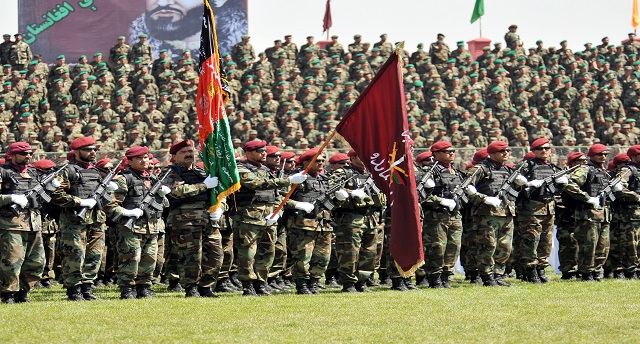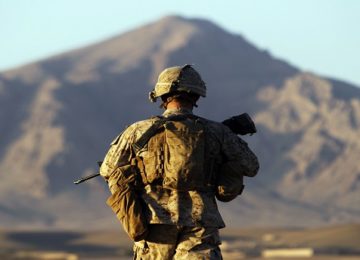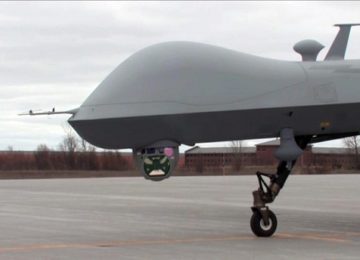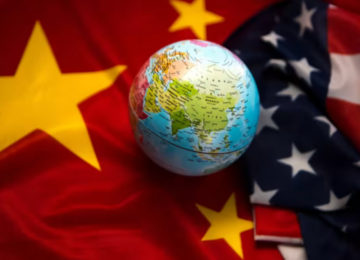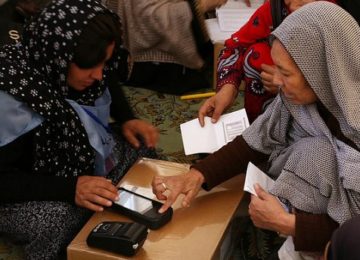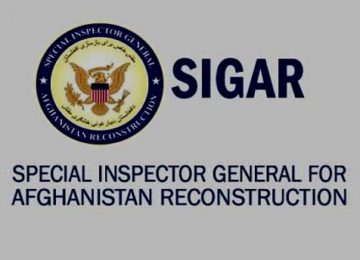A major shakeup at the top level in the Afghan army amid a resilient Taliban revolt has caused shockwaves in the war-stricken country.
President Mohammad Ashraf Ghani directed the retirement of more than 160 Afghan National Army (ANA) generals last week.
The Kabul government has labeled this move part of the broader strategy for reforms in the security sector, and phasing out the older generation of officers.
“We want reforms to win the war and peace. We don’t want reforms just for the sake of reforms. This process will continue for our brighter future,” the president said in a statement.
Under a draft law approved by the Afghan parliament in November last year, as many as 2,000 high-ranking military officers are scheduled to retire in two years.
Considering the surging assaults of the Taliban nationwide, particularly in the capital Kabul, many army veterans, politicians, and independent analysts are sceptical of the move.
Hashim Alakozay, who chairs parliament’s defence and internal affairs committee, is among its prominent critics.
“This move is the direct result of pressure from Western countries” that are funding the army, he said.
“These generals are being retired illegally without the approval of both houses of parliament.”
Purge of Former Officers
Alakozay hinted that the Wolesi Jirga (lower house, House of the People) and Meshrano Jirga (upper house, House of the Elders) would challenge this move after the winter recess.
The modern Afghan army was formed in 2002, after the fall of the Taliban regime, and its current strength is around 200,000, according to the US Defense Department, the main backer of the Afghan government.
Unclassified statistics indicate that through the end of last year, the US designated $44.1bn and disbursed $43.5bn to build, train, equip and sustain the army.
Prior to its establishment, the Afghan army had been trained by the former Soviet Union. With the collapse of the communist government of Kabul in 1992 at the hands of the Afghan Mujahedeen, the army consisted of a mix of former Mujahedeen and the soviet trained officers, equipped with Russian weaponry. Before that there was a significant Ottoman influence in the sector.
Military affairs analyst Mohammad Ashiqullah said the latest move is aimed at promoting Western-educated young officers who are accustomed to the new arsenal provided by the US.
“This corresponds to the long-term strategy of the US in Afghanistan and this region,” he said.
Within days of taking charge as president in 2014, Ghani signed a bilateral security agreement with the US in a bid to mend ties that had soured briefly when his predecessor Hamid Karzai refused to sign the pact, and even publicly criticized Washington.
Defense Ministry spokesman General Dawlat Waziri defended the move as much needed.
“This won’t create any vacuum, we have officers in the wings who have completed studies and training inside the country and abroad. Those respected officers who have been retired were in reserve force, and not active anyways.”
He said plans are in place to make use of the retired generals for advisory services or as academics.
This, however, has not stopped the barrage of criticism directed at the government from various sides.
Critics say the US-baked Ghani government, in a political move, is sidelining former Mujahedeen and former communist-era officers as well as religious figures from the army.
Former Mujahedeen, known as Northern Alliance, help US dislodge the Taliban, they in turn were disarmed by the US baked Karzai Government in 2003, using the former communist-era officers in a programme called Disarmament, Demobilization, and Reintegration (DDR).
“It is good that young people come and join the army, but they [government] only use them to achieve their own goals.” Said Atta Mohammad Noor the governor of the Balkh province, to a gathering in the province last week.
This article originally appeared on www.aljazeera.com on February 12, 2018. Original link.
Disclaimer: Views expressed on this blog are not necessarily endorsed or supported by the Center for Research and Security Studies, Islamabad.



